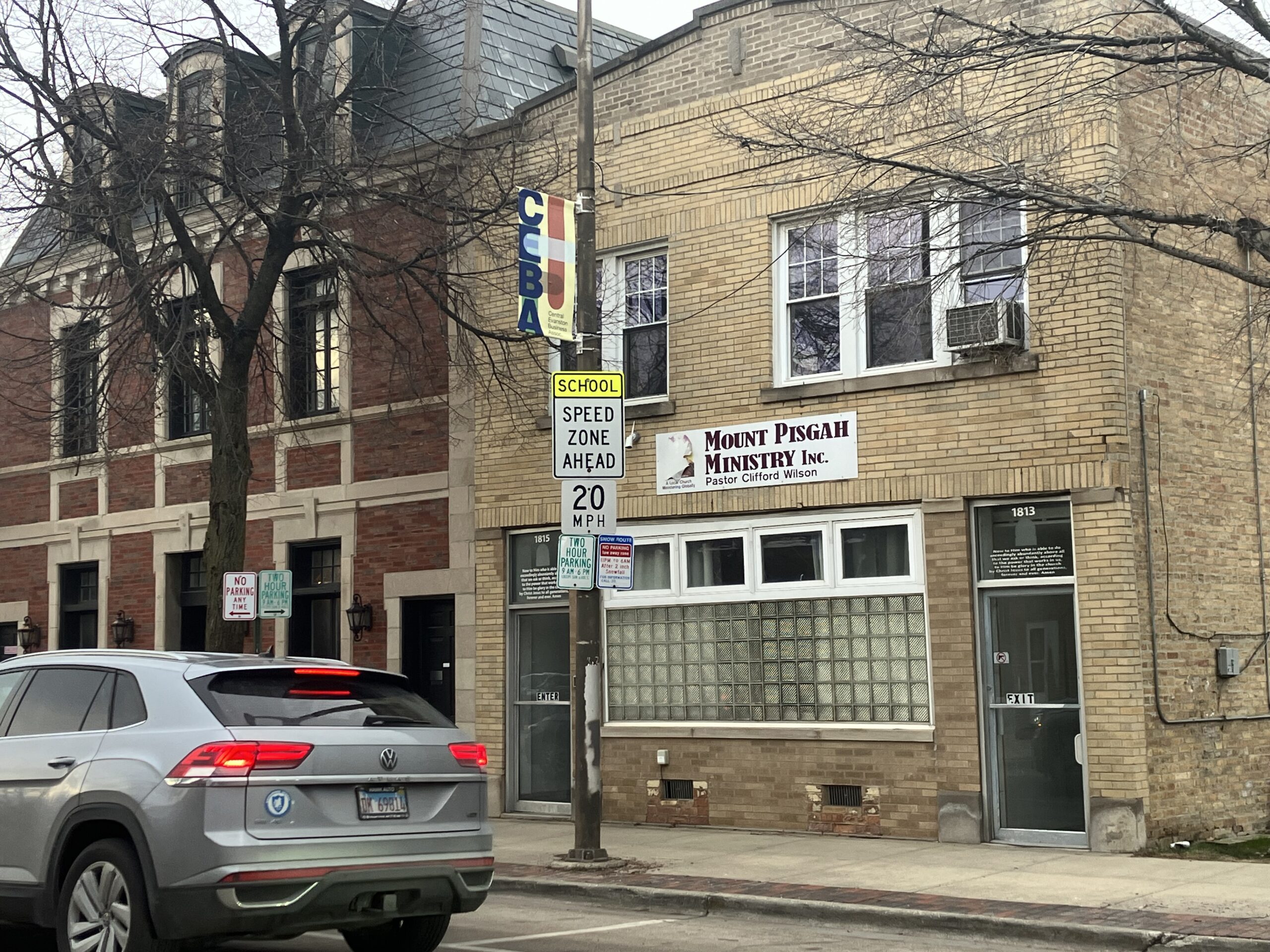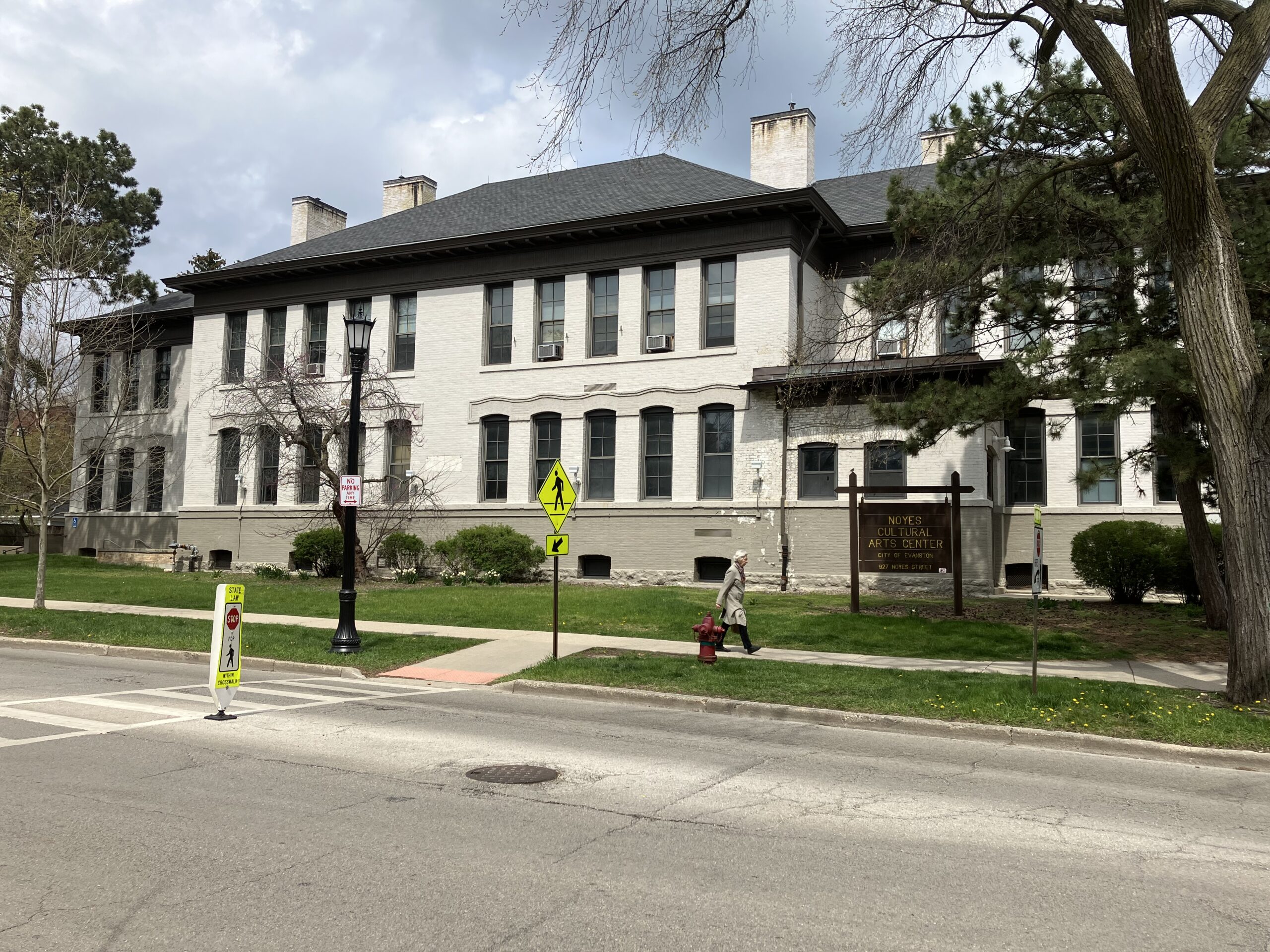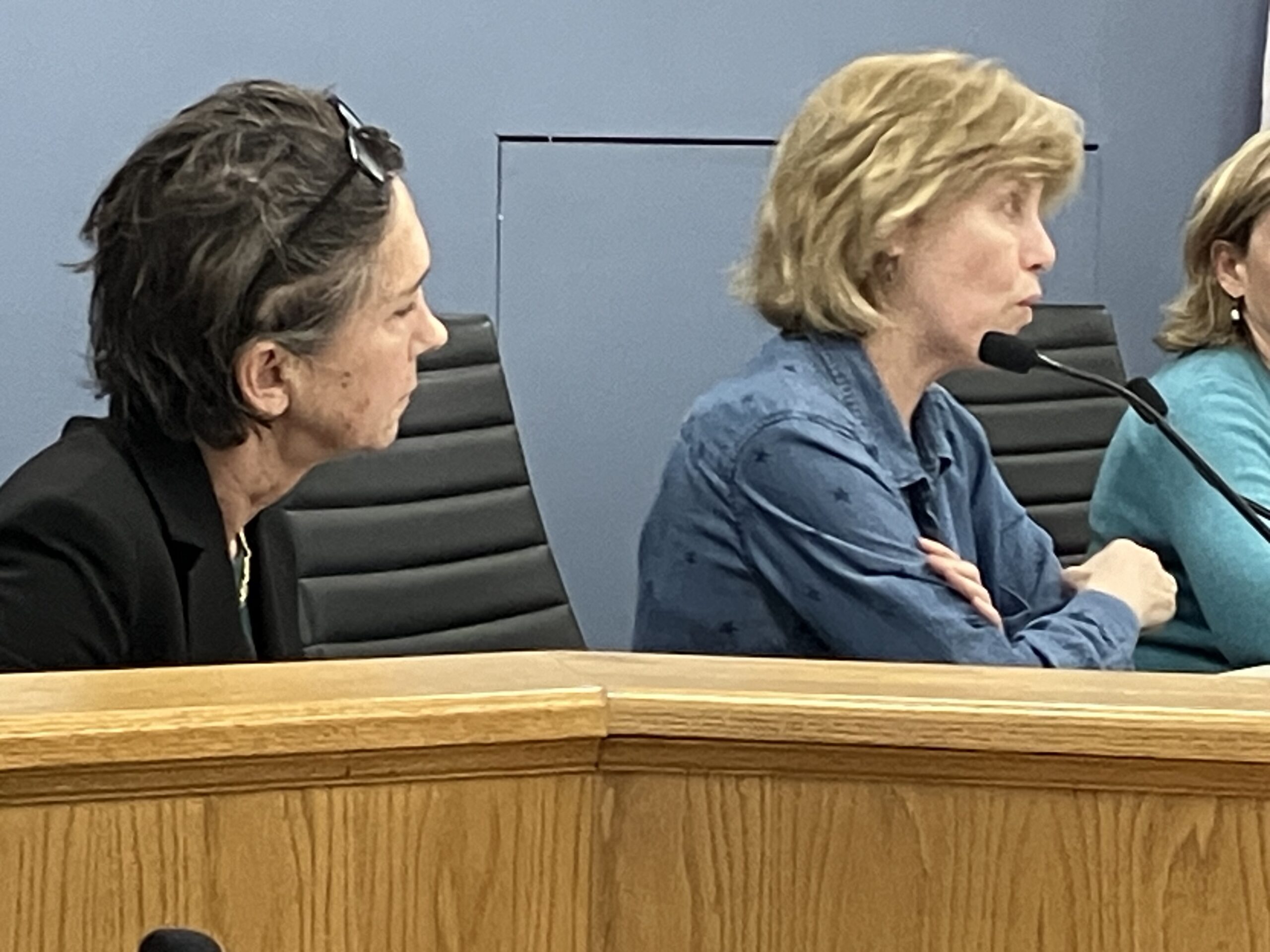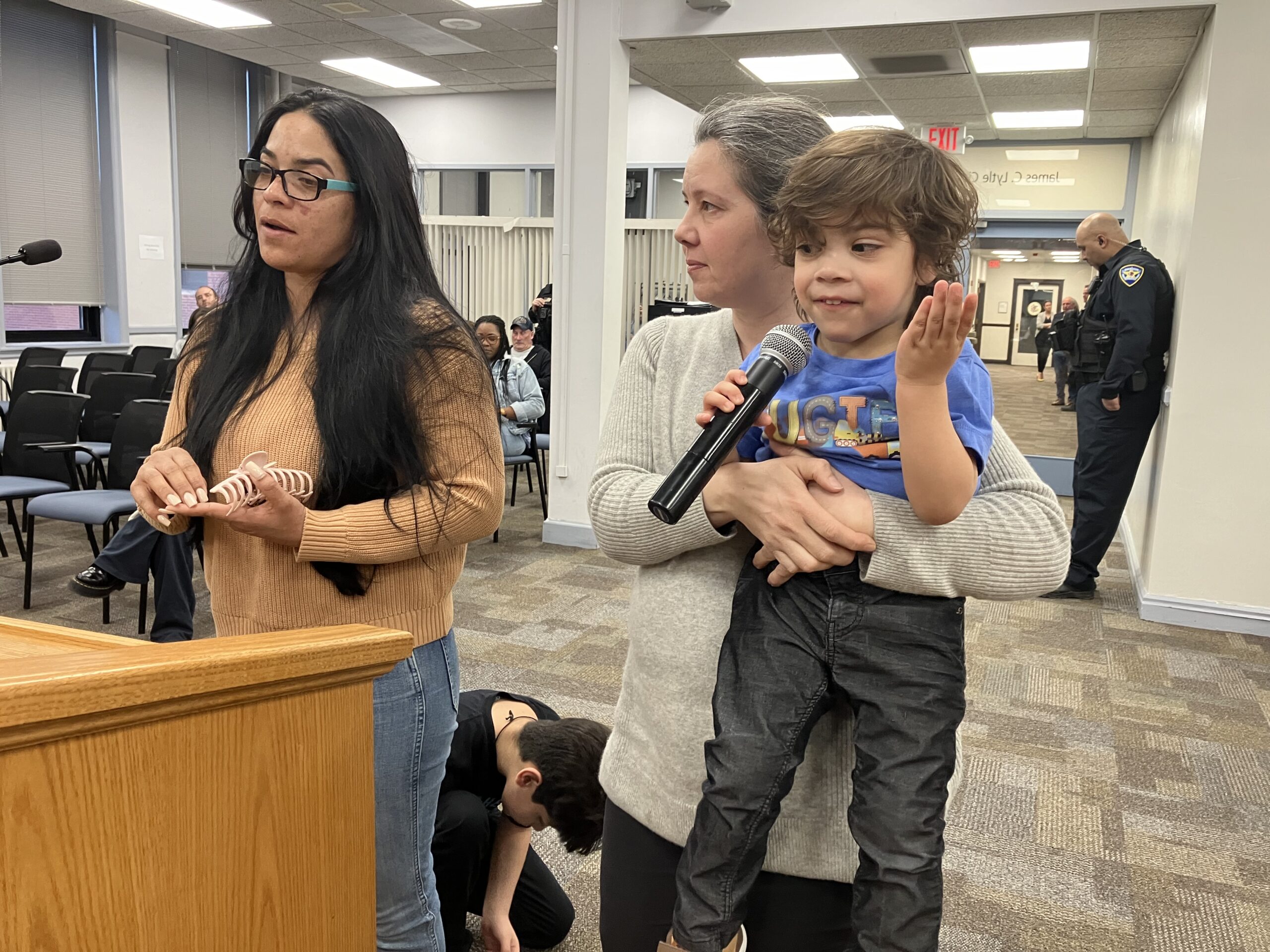By Bob Seidenberg
An Evanston City Council member testified Feb. 8 that she attempted to bring in the city’s Preservation Committee to review changes made “on the fly” to an affordable housing project planned on a parcel next to a landmark structure.
First Ward Council Member Clare Kelly was testifying at a hearing on a lawsuit brought by a local law firm.
Crosby Theodore, an Illinois limited liability company which owns the property at 1817 Church St., a historic landmark building on the block where the development is planned, has filed a lawsuit against Mt. Pisgah Ministries and the Housing Opportunity Development Corp., seeking a temporary injunction to halt HODC’s affordable housing project.
The firm’s 98-page suit raises a range of issues, including concerns about contamination from a parcel that once housed a gas station and water overflow from the project onto its own historic building, a three story, turn-of-the-century Renaissance-style structure.
Kelly had raised concerns at a March 13, 2023, Planning and Development Committee meeting about a Fifth Ward redevelopment project proposed by Mt. Pisgah Ministries and Skokie-based HODC on property nearby, at Church Street and Darrow Avenue.
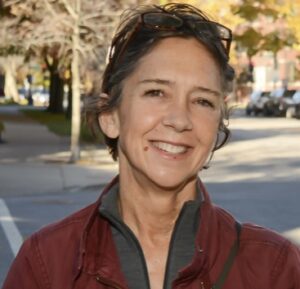
Responding to criticism about the project’s density, Fifth Ward Council Member Bobby Burns proposed at the meeting that the height of the HODC building be reduced from five to four stories, cutting its size down from 44 to 33 units.
The change in height from a proposed five-story structure to three stories, resulting in a loss of 11 affordable units, was “made on the fly,” Kelly said in court.
“It was not presented in a formal document,” she said, “and it was discussed during deliberation and agreed there would be a reduction in height.”
She said that while she proposed the change go the city’s Preservation Commission for suggestions on amending the ordinance, it instead went to the City Council.
City fought subpoena of council member
Court filings show that city attorneys had attempted to quash Kelly’s subpoena to appear, citing legislator immunity.
In support of rejecting the subpoena, the complaint stated, “One Council member does not have any power alone and may not act by herself … the Council Member may only act as a member of the corporate authority, which is the City Council.”
Cook County Circuit Judge Cecilia A. Horan ruled in favor of Crosby Theodore’s subpoena, allowing to Kelly to testify, on the basis of an allegation that the ordinances in the project “weren’t appropriate and that she might have information about the processes in place” that led to the decision.
The judge said that she would allow Kelly to give testimony, “but I will limit testimony to what’s appropriate,” she assured attorneys.
She lived up to that statement, sustaining repeated objections from Derke Price, the attorney representing the city, objecting to Kelly’s responses, citing legal precedent.
The project involved a land swap, allowing HODC to develop its mixed-use building on the site now occupied by the church. In turn, Mt. Pisgah could then relocate to a lot on the Church-Darrow corner that was formerly owned by the city. The church would foot the cost of a new 200-seat worship center.
The city played a major role in the financing of the project, authorizing $4 million in funds, and writing in support of HODC’s application for roughly $14 million in low-income housing tax credits from the state.
Crosby Theodore’s filing maintained that Evanston Community Development Director Sarah Flax “has openly advocated for HODC’s plans – and thus HODC’s financial interests – at public hearings.”
Site ‘very special to us’: Law firm’s founder
Kelly was the second person to testify at the hearing, livestreamed on Zoom.
The first was attorney Erin Jackson, who founded Jackson LLP, an entrepreneurial health law firm, with her husband Connor Jackson, the registered agent for Crosby Theodore.
Jackson LLP is based at the 1817 Church St. building, which Erin Jackson said has a large, landscaped courtyard that is used frequently for events in the summer. “People actually enjoy coming to work and spending time there,” she said. “So it’s become really special to us.”
She said the building’s historic landmark designation imposes constraints on modification and design. The firm has made significant restoration efforts, including the construction of an accessible ramp at a rear alley entrance.
The property has “had water issues … and we work to deal with it,” Jackson testified. “Evanston, in my experience as a property owner, takes permeable to impermeable surface area very seriously,” she said.
“There’s a lot of old construction, just like our building, and it’s important for stormwater runoff and ground absorption and all of that. So I became very concerned that the very large building with no ability to absorb water next door to us would essentially cause a deluge of stormwater into our building.”
Lawsuit: Housing complex ‘incompatible’ with area
The firm’s suit noted that the area near the development “includes single-family housing, multi-family housing, one-to-two-story commercial buildings, the high school, food establishments, a youth community center, and churches.”
“It is incompatible with the character of nearby properties to allow HODC to build a monolithic supportive housing complex when HODC has shown its inability to maintain healthy and safe conditions in much smaller properties in Evanston,” the filing alleged.
The suit alleged criminal activity and health and safety issues plague another HODC building, the Claridge Hotel Apartments at 319 Dempster St.
In discussion at an April 2023 council meeting, Kelly said she had fielded numerous calls from tenants about poor conditions at HODC’s 48-unit Claridge building in her ward. The issue did not come up at Thursday’s court hearing, with Price raising repeated objections to questions posed by Junilla Sledziewski, Crosby Theodore’s attorney.
HODC: Allegations ‘speculative’ and ‘superfluous’
HODC and the city struck back with strong responses of their own, asking that the bid for an injunction be rejected.
HODC charged that the “Plaintiff’s 755-paragraph, 98-page complaint is laden with repetitious, conclusory, speculative and superfluous allegations spread across 17 counts seeking to prevent the development of an approved 33-unit, mixed-use retail and affordable housing building adjacent to its property and a new church on the corner of the same block.”
“HODC’s development addresses several needs prioritized by the city, namely, (1) increasing the City’s supply of affordable housing, (2) expanding the supply of accessible units, (3) adding new affordable units at lower cost per unit to the City, and (4) adding commercial space for businesses and amenities,” HODC said.
The city responded to concerns about insufficient information regarding the contamination at the lot where the gas station was once located. The city had notified parties in its initial request for proposal, officials maintained, that “a no-further remediation letter had been received from the EPA [and] that a potential asphalt barrier must remain in place over contaminated soils and must be maintained as an engineered barrier.”
The next court date in the case is March 15.
